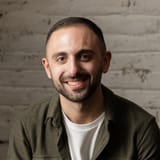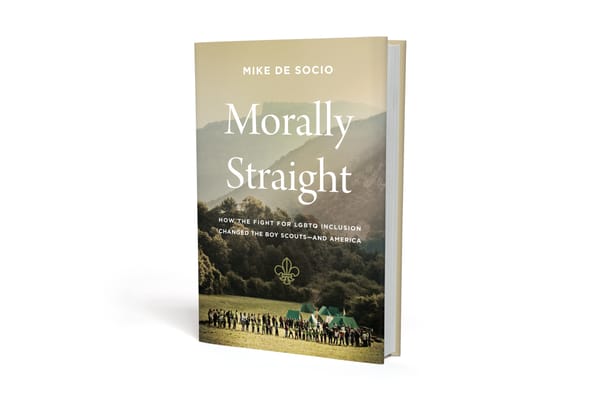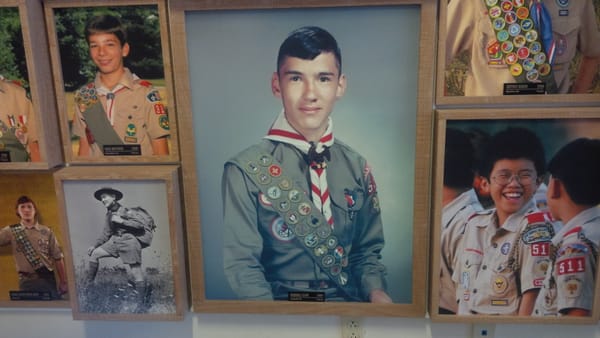Pride Profile: Preston Marquis
"When you lower the obstacles, as artificial as they can be, and just let young people be young people, you can get some real magic from that."
Preston Marquis has seen Scouting from a perspective that few others have. In 2012, he served as the national vice chief for the Order of the Arrow, a position that brought him around the country and introduced him to countless scouters along the way. In the decade since then, the eagle scout and vigil honor member has continued to volunteer at the national level.
I talked to Marquis about his experience as a bisexual man in the program. Below is our conversation, edited and condensed for clarity.
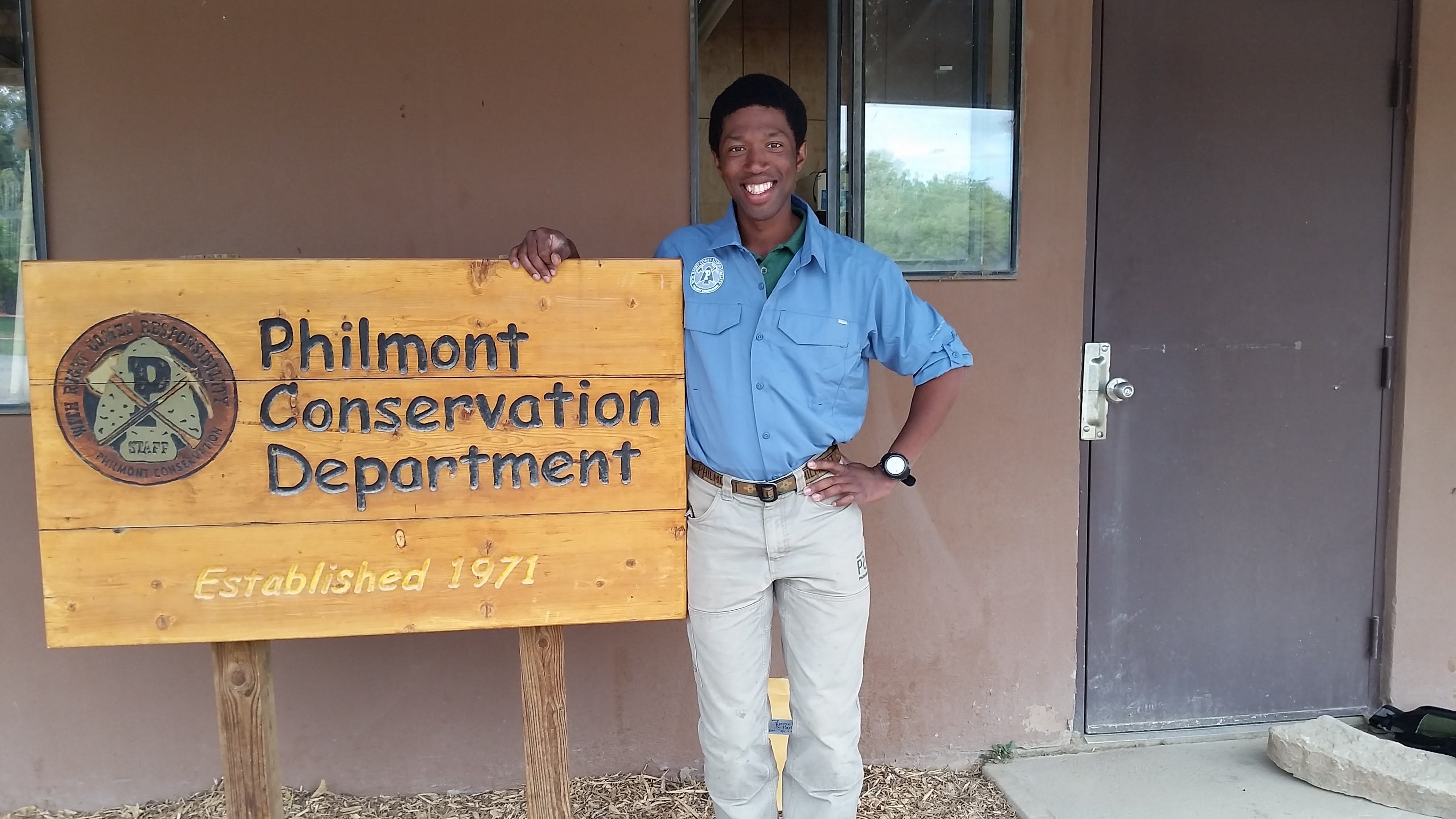
If you had a message you might give to your younger Scouting self, what would you tell that person?
I think I would say, or I would remind myself, that you aren't alone, in the sense that you never know what other people are carrying with them. And I would say that because, one of the really beautiful things that I have experienced being in Scouting, particularly at a higher level of service in the OA for the past 10 years or so, has been watching other people embrace their own authentic selves. People who, when we were kids, I would have had no idea identified as LGBTQ. But I think I would have told myself that just because you can't see them doesn't mean that they aren't there, and doesn't mean that they aren't also going through a similar journey. And I think that I would have drawn strength from that message, from knowing that.
That’s powerful, and I hear that a lot from LGBTQ scouters, that it would have meant a lot to them to have LGBTQ role models when they were younger.
Yeah. I think, as humans, we draw strength from being in community, from being able to make meaning of things with others. And unfortunately, the Boy Scouts can make that hard, because so many people feel like they need to keep that part of themselves hidden. And I think it just draws out the process, perhaps more than it should, as people are trying to understand that part of them. It's tough trying to make sense of it, and also keep it hidden at the same time.
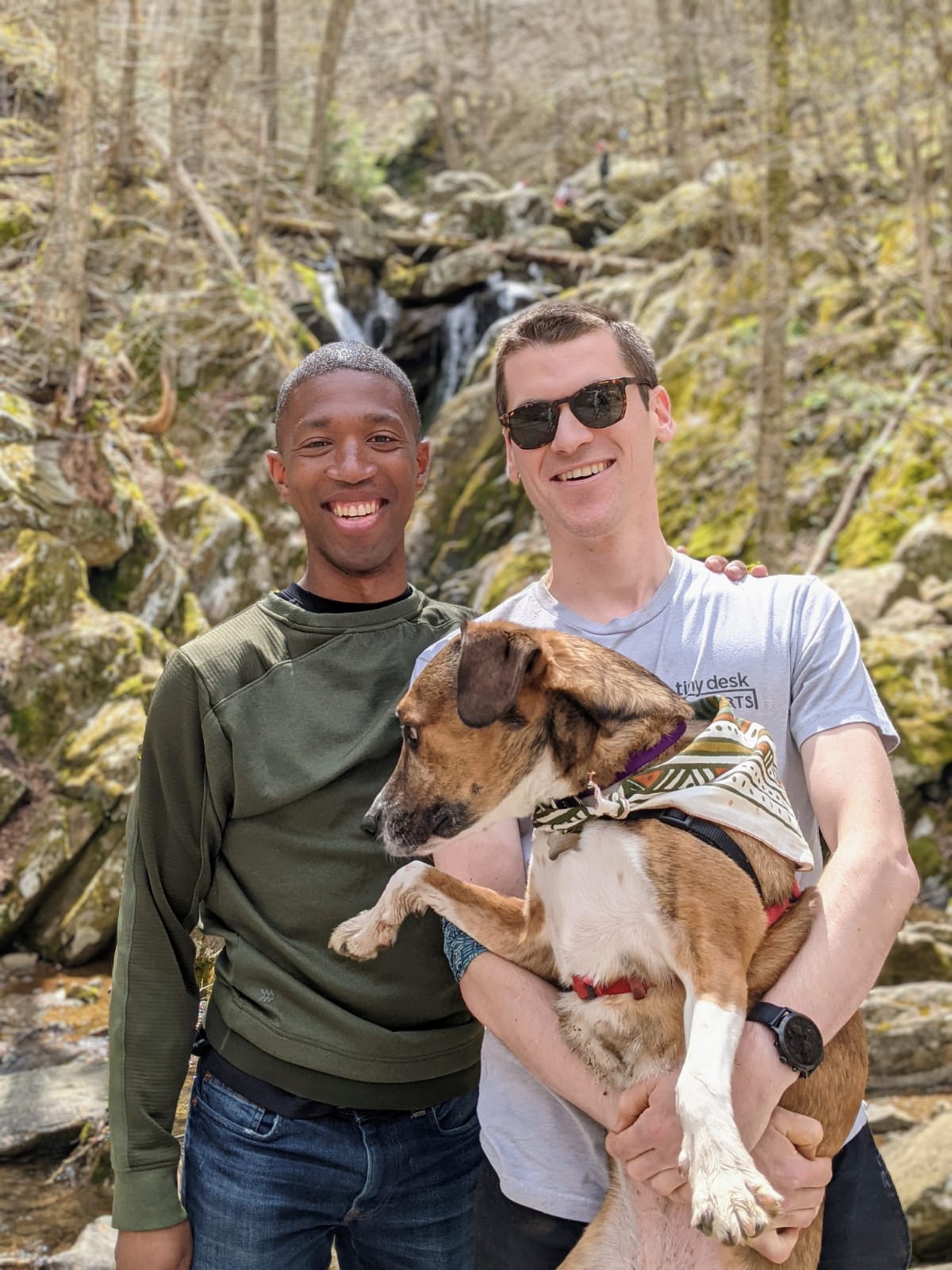
Despite those challenges, why do you think Scouting is worth it?
It may be cliche, but sometimes the things that are the hardest to fight for are the most fulfilling. And I feel like that sometimes with Scouting, when you can see the small wins in terms of the impact that this program has on young people as they grow into very capable leaders, it does remind you that, despite it all, that this program does bring good into the lives of so many and it helps people stand on their own two feet in terms of becoming leaders and positive citizens for the world.
I think it's that recollection, that understanding that keeps me going. It's just an acknowledgement that this program has its flaws, and maybe it won't be around in the next 50 to 100 years. I hope it is, but I'm not the deciding factor in that. But even if it isn't, it doesn't mean that it's not bringing good into the lives of young people around the country, and positioning them to go out and make a decent impact in the community. And I think that regardless of whether that's one young person or 100,000 or a million, I think that's a benefit that's that's worth fighting for.
What do you want to see for LGBTQ people in Scouting going forward?
This answer may not be super original, but I hope that a sense of acceptance and a sense of community would be the two baseline factors that that Scouting could offer to the community. And beyond pure acceptance and inclusion, which again, would be the least that this program can offer, I think there's so much that stands to be gained from bringing together different people from different backgrounds: LGBTQ and different communities in general. And just watching how those communities can help people learn to embrace difference and to emerge in their own right as better human beings. And I think that that certainly applies to people who aren't in the LGBTQ community, but I think it also applies to people who are in the LGBTQ community, because when you lower the obstacles, as artificial as they can be, and just let young people be young people, you can get some real magic from that.
